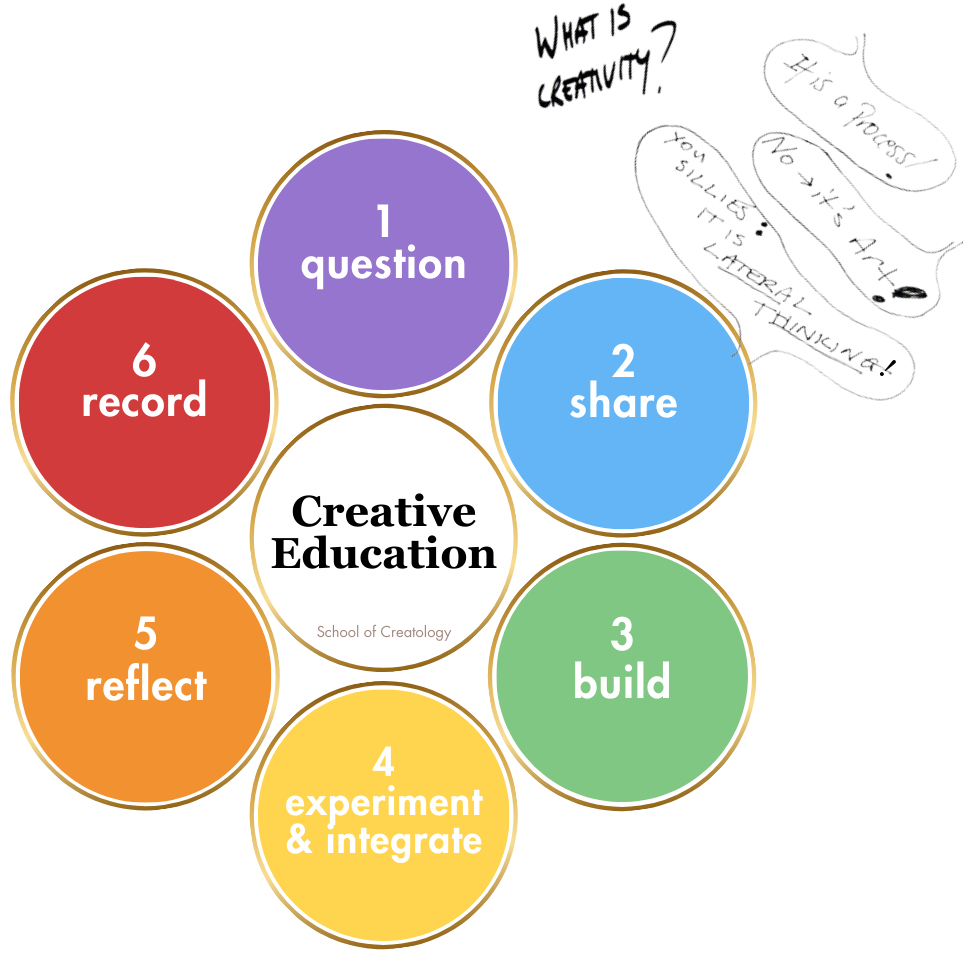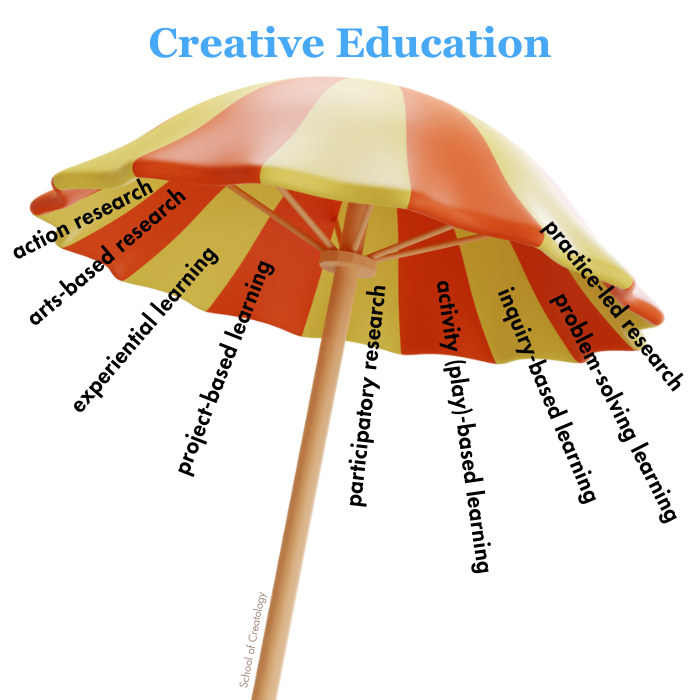
Creative Education Methodology
The WAY we learn is as important as what we learn.
Creative Education is different to academic education.
Even though Creative Education teaches subjects as academic education does, it teaches them in a different way.
It uses the creative process.
This means we explore a subject by being creative.
Much like a scientist used the creative process to learn about the nature and power of Water, we also ask questions, play with theories and ideas, experiment with these theories and ideas, and draw our own conclusions.
But rather than our topic being Water, our topic is Creativity.
This method of learning is called Creative Education.
It is an arts-based approach that leads with a question and inquiry (where all human creativity begins),
and is experiential, hands-on, project-based… based in do-ing, in be-ing… in order to develop new knowledge and new skills and interests.
After all, Creativity is a state of being!


Creative Education is not only applied to creativity studies or arts subjects, but can be applied to learning about any subject.
In fact, it is how our subjects, such as our sciences and maths, were born!
We:
- bring up and out what we already know about creativity,
- share our understandings with each other,
- build upon that knowledge through discussion and creative experiences,
- experiment with and integrate what we are learning into our creative projects, taking them above and beyond,
- reflect upon our experience and draw out deeper, and newer understandings about creativity, and
- record them in our personal creative guidance book called the “By the Book” BOOK, so we can always refer to them.
Creative Education is
an umbrella term
for many methods of learning including:
- arts-based research,
- project-based learning,
- inquiry-based learning,
- action research,
- participatory research,
- problem-solving learning,
- experiential learning,
- activity (play)-based learning, and
- practice-led research.
These methods are all tools that collect qualitative information, that is, the qualities of a thing / experience / experiment / project, etc,
to generate new insights and knowledge about it.

Each method shares similar principles including:
- inquiry,
- drawing out and building upon new knowledge and skills through discussion-based classes
- integration / practice of new knowledge and skills through a project
- self-direction, and self-determination,
but the overarching principle is the use of the creative process to learn and grow by
(as opposed to the academic process to learn and grow by).
In our case, we use Creative Education as a way, a method,
to generate new insights and knowledge about the qualities of Creativity, while and by expanding our creative skills such as our creative capabilities, practices, processes, and thinking.
Creative Education integrates:
The creative Person/People… you, me, us… our capabilities, practices, knowledge
The creative Process… a project’s creative process and its learning methods, eg project-based learning, experiential learning, inquiry-based learning, action research
The creative Product… the outcome of a creative project; a product or service
and
The creative Press (environment)… the internal and external energies that form and fuel our internal and external ecos, such as our creative state of being within ourselves and within the co-creative culture that supports us.

Why does SOC teach Creatology through Creative Education?
The most effective way to learn about creativity is by exploring creativity’s concepts while being creative…
through the creative process.
Its theory is that:
by being creative while learning about creativity in a co-creative culture, we increase our
- our knowledge about the power and nature of creativity,
- our understanding about our own creative natures and power,
- the capacities of our creative natures and power themselves, and
- the efficiency and effectiveness of our projects.
Creative Pedagogy or Creative Education are interchangable terms, depending upon who you ask.
‘Pedagogy’ refers to the method… the way… a subject is learnt and taught, and therefore, experienced.
Have you heard of the phrase, “The Way of Creativity”?
